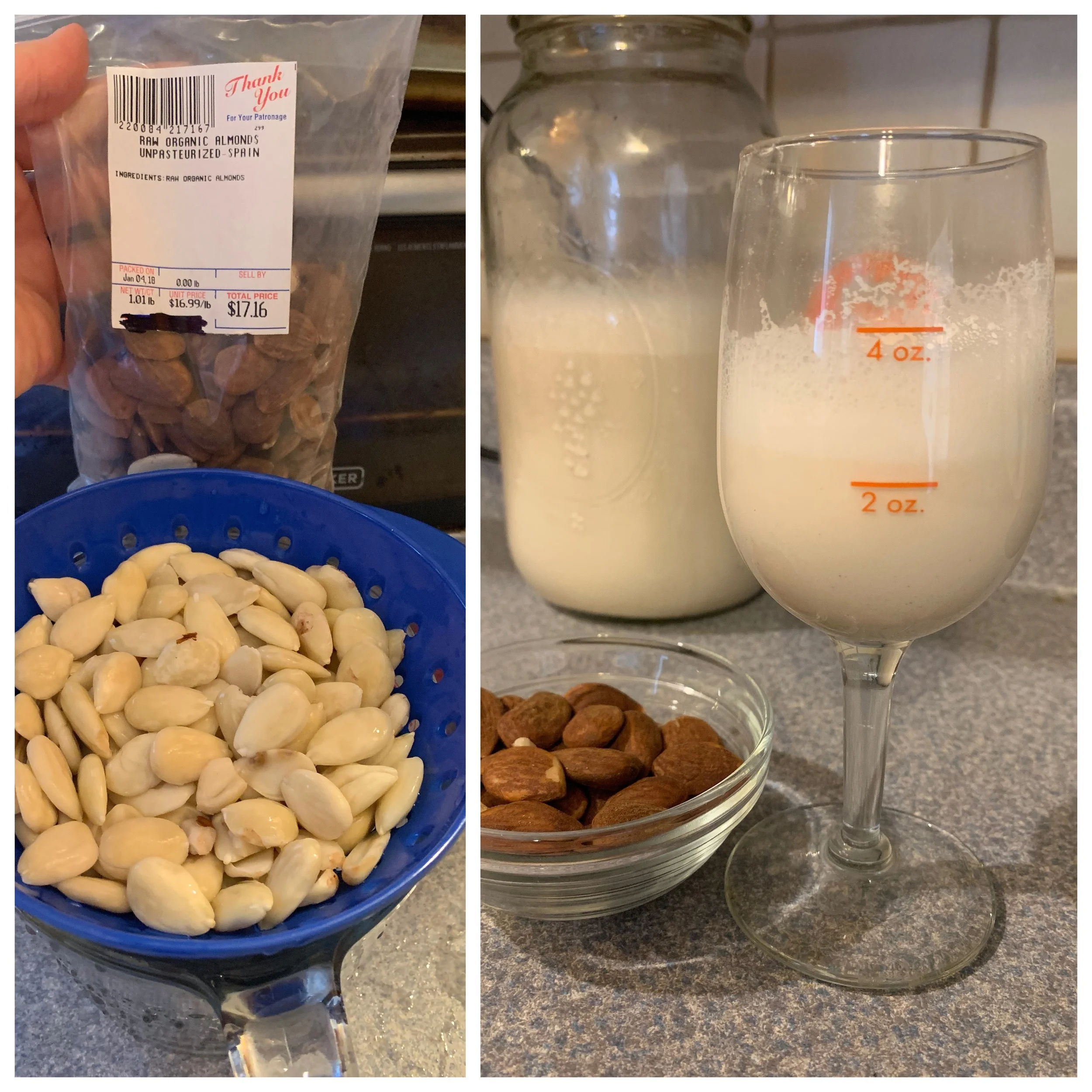DIY Almond Milk Recipe
If you’re vegan or like myself, lactose intolerant, you may be buying almond milk or some other milk alternative and noticed that most of them have ingredients that don’t sound natural and may or may not be safe to drink, the jury’s still out. Until the science is conclusive, I prefer to make my own. I went through a period a few years ago where I made my own almond milk but life happened and I fell out of the habit. Truth be told, I didn’t love the straining part of the process - it was messy and I could never think of what to do with the leftover pulp. I recently saw in a cookbook where the author suggested something super helpful: Don’t strain the almonds. Say what? I tried it and it’s a total game changer - no more clunky straining through cheesecloth and then trying to figure out what to do with all of that pulp. The milk (mylk?) is heartier and provides more fiber & nutrients as well since you’re consuming the whole nut. I had some liquid sunflower lecithin leftover from an experiment I did awhile back and decided to try it as an emulsifier. And that worked to keep the milk from separating.
Here we go:
1 Cup Whole, organic raw almonds
4 Cups filtered water, plus more for soaking
Pinch of kosher salt
1/4 tsp cinnamon
1 tbsp vanilla extract
1 tbsp liquid sunflower lecithin (Optional; if omitting, you’ll want to shake the milk before consuming)
1/8 tsp almond extract (if not using *truly raw almonds)
Place nuts in a bowl add 2 cups filtered water and soak for ~12 hours. Drain and rinse nuts. If you don’t want dark specks in your milk, shell the nuts (they easily pop out of their shells - time consuming but kind of fun)
Place nuts in an upright blender and add 4 cups filtered water, salt, cinnamon, vanilla, and sunflower lecithin. Blend on high speed for at least a minute or until completely smooth and frothy. Pour into a glass jar or bottle and store in the fridge for 7-10 days.
California law requires almonds to be pasteurized - a process where the almonds are either heated to 165º for 9 hours (organic almonds) or are fumigated with a carcinogenic chemical called propylene oxide (non-organic almonds). So even though they say they’re ‘raw’, they are not.
*I wanted to find truly raw almonds for this post and did but they were $16.99 per lb (ouch!). Truly raw almonds have to come directly from the farmer if you’re ordering from California or from a country that doesn’t require pasteurization. I opted for Spanish almonds from a local natural foods store due to the excessive time and shipping costs for the domestics. The almonds themselves are a bit chewier but didn’t have much of a different flavor from the pasteurized “raw” almonds we get here in the states. The difference, however was apparent in the milk. You know how almond extract has that slight cherry flavor that you don’t taste in the almonds themselves? The Spanish almond milk has that same slightly cherry flavor and a hint of sweetness to it. I drank some immediately after blending so it was still warm and creamy - what a treat!
I’d love to be able to order directly and support our US almond farmers. If you’re interested in raw almonds as well, email me at haley@yellowbirdfs.com and let me know how many pounds you’d like. If there’s enough interest, I’ll look into placing a bulk order to split shipping costs.



